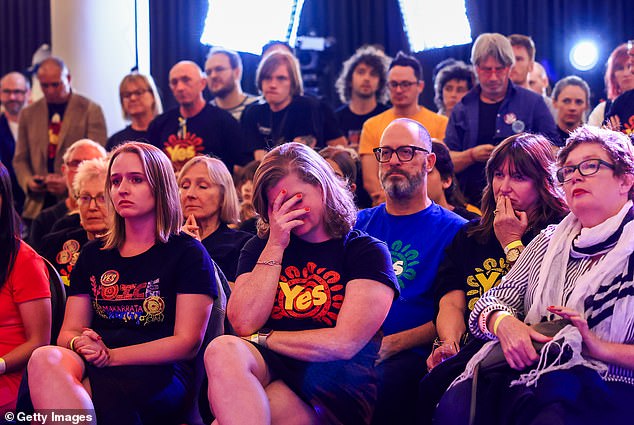Victoria creeps closer to signing Aboriginal treaty less than one year after Voice failure
- Victoria moves closer to signing Aboriginal treaty
- First People’s Assembly is willing to negotiate
Victoria is one step closer to becoming the first state to sign a treaty with Indigenous Australians.
The First Assembly of Victoria says it is prepared to negotiate a treaty with the state government.
The official notice has been entered into the Treaty Authority’s negotiation database and a copy of the declaration will be presented to the Authority at a ceremony on Wednesday.
The meeting’s co-chair, Rueben Berg of Gunditjmara, said it was a culmination of years of work by Victoria’s various traditional owner groups and the Torres Strait Islander Aboriginal community to create a shared vision for how the path to a treaty should proceed.
The Treaty Negotiation Framework allows Traditional Owners to form delegations to negotiate treaties that reflect the priorities and aspirations of a specific area, while the Assembly will negotiate a state-wide treaty for structural reform.
Under this framework, all parties wishing to negotiate a treaty, including the Assembly and the government, must satisfy the treaty authority (the independent arbiter) that they will adhere to certain standards.
Assembly Co-Chair Wamba Wamba, Yorta Yorta, Dja Dja Wurrung and Dhudhuroa woman Ngarra Murray said they would continue to gather feedback from communities across Victoria.
“We are a diverse group here in Victoria, made up of people from all nationalities and tribes, and we want to make sure everyone is heard,” Murray said.
Victoria is one step closer to becoming the first state to sign a treaty with Indigenous Australians (pictured, a protester holds the Aboriginal flag at an Invasion Day rally in Sydney)

The Treaty Negotiation Framework enables Traditional Owners to form delegations to negotiate treaties that reflect the priorities and aspirations specific to a particular area, while the Assembly will negotiate a state-wide treaty for structural reforms
“It’s an exciting time for the indigenous people of Victoria. We’re going to sit down together soon to negotiate the first treaty in Australia.”
Aunt Jill Gallagher, who is not directly involved in the negotiations, revealed in May what compensation she wanted the First Nations people to receive.
“I think reparations should be on the table,” she told 3AW.
“It may not be about money, it may be about empowerment, it may be about land, but it certainly is not about private property.
“No one will lose their private land through this treaty process.”
Her comments came after the Allan government refused to rule out the possibility of indigenous groups being given forcibly acquired private property.
Natalie Hutchins, Minister of Treaties and First Peoples, was pressed on the issue when she chaired the Public Accounts and Budget Committee hearing.
“The Treaty focuses on creating a new pathway for the future of Aboriginal people,” she said.
Ms Gallagher said land “should be part” of the reparations, with the government potentially being able to buy land and transfer it to indigenous organisations.
“It would be great if our elected body, the First Peoples’ Assembly of Victoria, had the ability to buy land when it comes on the market,” she said.
Negotiations on a treaty begin less than a year after Australia rejected the Voice in the October referendum.
